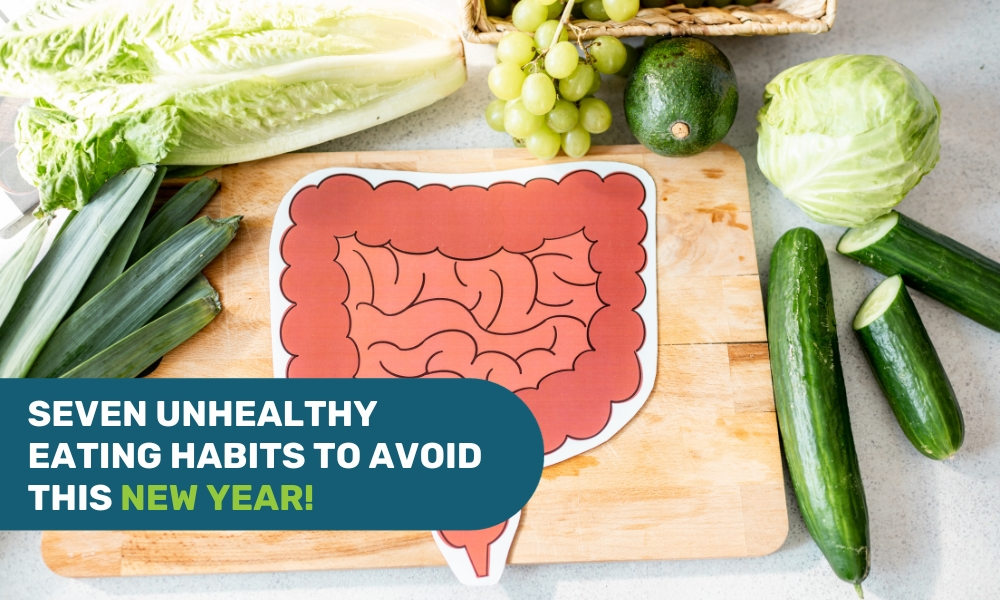What we eat, how much we eat, and what our body requires are some important questions we must consider addressing regarding a healthy digestive system.
Our eating habits may not seem like a big deal, but they can become one if we do not pay much attention to our body’s needs. Good and bad eating habits are usually taught in junior classes, but we often fail when it comes to practical application. In the sedentary lifestyle we all live with; little things determine the quality of our life.
Age is a rite of passage, and our bodies change as we age. As we enter our 40s, our body starts to experience changes, including a slower metabolism and a more sensitive digestive system. Certain eating habits can exacerbate these changes, causing digestive problems like constipation, bloating, gas, and diarrhoea. Here are seven eating habits that can cause digestive problems in your 40s:
Unhealthy Eating Habits to Avoid this New Year!
-
Eating too much-processed food: Processed foods are often high in unhealthy fats, added sugar, and artificial ingredients, all of which can irritate your digestive system. Instead, one must eat fresh fruits, vegetables, lean protein, and whole grains.
-
Eating spicy foods: Spicy foods generally irritate the stomach lining and cause heartburn, indigestion, and diarrhoea. If one has a sensitive stomach, then one must limit or avoid intake of spicy foods.
-
Gulping Down Food Quickly: Rushing through our meals can cause swallowing air, leading to bloating and gas formation. Take time to chew the food thoroughly and enjoy meals without distractions.
-
Skipping Meals: Skipping meals is a strict no. Breakfast, especially, can disrupt our digestive system and cause constipation. Aim to eat three balanced meals and 2-3 healthy snacks throughout the day to keep your digestive system running smoothly.
-
Not drinking enough water: Dehydration can lead to constipation and other digestive issues. One must drink at least eight glasses of water daily to stay hydrated and keep the digestive system functioning properly.
-
Drinking too much alcohol: Alcohol can irritate the stomach lining and disrupt digestion. One must limit alcohol intake to moderate levels or avoid it altogether if one experiences digestive problems.
-
Eating large portions: Eating large meals can overwhelm our digestive system and cause bloating, gas, and indigestion. One must eat smaller, more frequent meals throughout the day instead of three large ones.
Helpful tips for healthy digestion in 40s
-
Eat plenty of fiber: Fiber helps keep the digestive system healthy and promotes regular bowel movements. One must consume fiber-rich food, especially fruits and salads, every day.
-
Get regular exercise: Exercise helps to improve digestion and reduce the risk of constipation. One must aim for at least 30 minutes of moderate-intensity workouts regularly.
-
Manage stress: Stress can exacerbate digestive problems. One must manage stress through healthy ways such as yoga, meditation, or time in nature.
-
Listen to your body: One must pay attention to how our body reacts to certain foods and drinks. If we notice that a particular food or drink triggers digestive problems, then it must be avoided.
By adapting to small changes in our diet and lifestyle, we can improve our digestion and reduce our risk of digestive problems in our 40s and beyond. Everyone’s digestive system is different, so what works for one person may not work for another. One must, therefore, consult a gastroenterologist if having trouble in digesting food. To consult a gastroenterologist, CLICK HERE.





